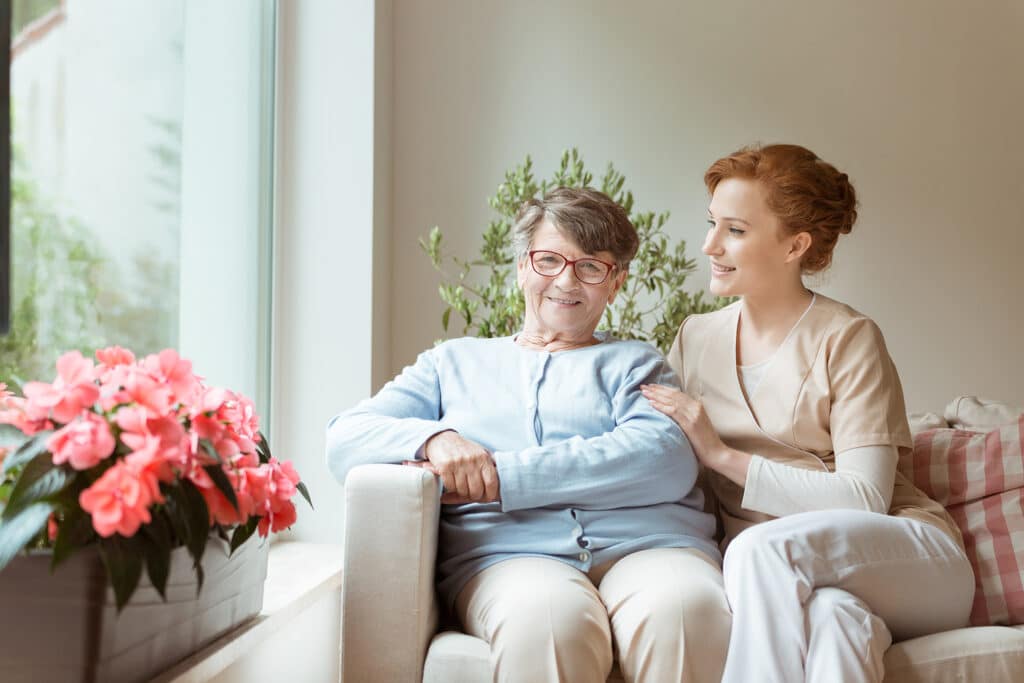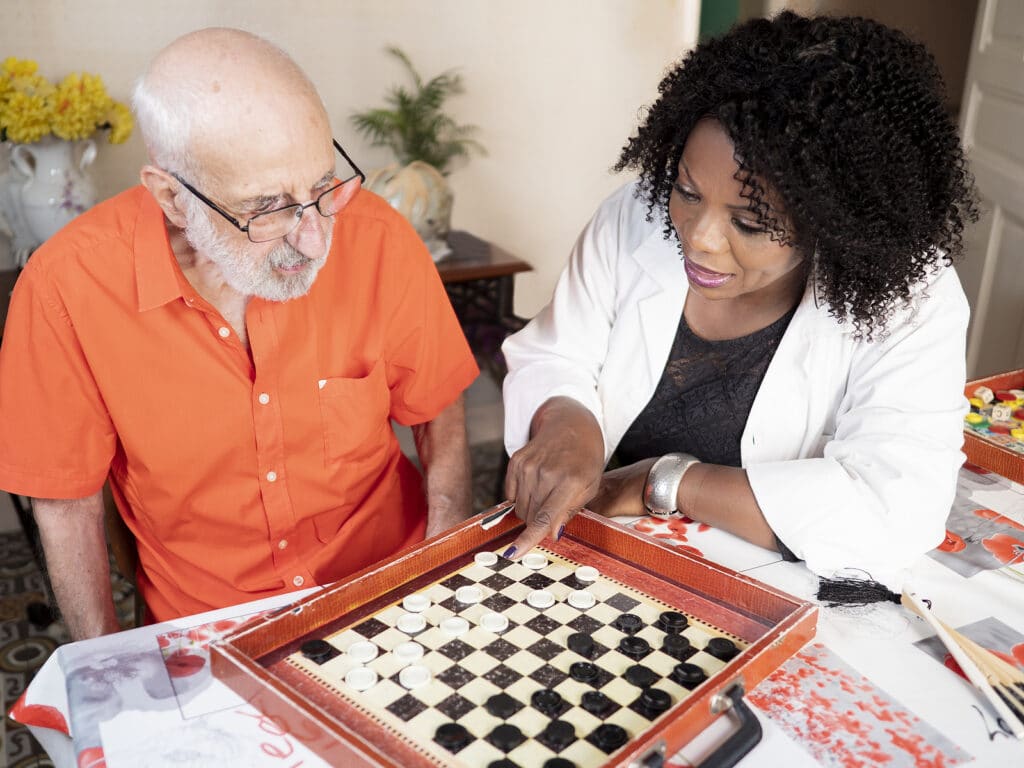Companion care can be an invaluable resource for seniors who have difficulty performing basic tasks or activities at home. Whether it’s helping out around the house by doing laundry, grocery shopping, making meals or taking a walk outside—at Vital Sign Home Care, we’re always available to step in whenever needed during tough times so that our client is able maintain their independence as long as possible.
With companion care at home, aging adults can keep their routines and continue to live independently in their own homes.
If you’re looking for a caregiver to help with everyday tasks like cooking, cleaning and running errands but not need the extra care that comes with an elderly loved one who might be bedridden or incontinent, companion caregiving is your best bet.
It has been estimated that there are more than 18 million people in the United States who need some form of assistance with their daily activities.
This is an increasing trend as baby boomers continue to age and new generations grow up expecting a high standard of living even if they no longer work outside the home, among other factors.
Companion care services offer essential help for those who can’t get around on their own without aid or struggling after long periods sitting down because it provides them companionship when needed – this helps give family caregivers peace-of-mind knowing someone will be checking up on them throughout the day.
Caregivers help to make daily living easier and safer for the care recipients. Some of these ways are performing errands, like grocery shopping or picking up medications, on their behalf; other times they will plan and prepare regular meals as well as light housekeeping duties. Caregiver’s often perform medication reminders too!
Caregivers are there to improve quality of life in other ways. They act as partners for favorite hobbies and activities, accompany clients on appointments and social outings, and engage in friendly conversations with their loved ones.
The isolation of aging is not just a feeling, it’s an illness. Companion caregiving provides isolated seniors with social interaction and regular companionship, ending the cycle of senior isolation which can lead to health complications.
You have questions and we have answers, contact us today and one of our Vital Sign Home Care staff members will contact you shortly.

When you need home care for your aging loved one, it can be challenging deciding what type of service will work best. Companion Care services tend to focus on social needs while personal care services emphasize medical and physical needs.
When choosing elder care, the difference between companion and personal is an important consideration in the decision process as they both provide different benefits based on a person’s individualized requirements.
Home care companions can do your laundry, make you a delicious meal that’s not just microwaved leftovers from the night before, and help out with errands like grocery shopping. They also provide emotional support to those who are grieving or struggling in their day-to-day lives due to illness or disability.
Personal care is an area of service that seeks to help people with basic needs, like personal hygiene. It can also provide physical assistance in the form of helping a person get up from their seat, grooming, eating, dressing, and toileting.
Many older adults can age in place with the help of companion caregiving. However, seniors who require advanced care or physical assistance may need personal care to live at home safely.
According to the 2020 Genworth Cost of Care Study, the average national median cost for companion care (classified as homemaker services) was $54,912 ANNUALLY for a home health aide and $53,768 for a homemaker. The hourly rate for a home health aide ranged from $17.00 in Louisiana to $33.00 in Minnesota. The median cost for an hourly caregiver is $24.00 per hour.
Genworth calculates average median rates based on 44 hours per week. If your loved one only requires the help of a companion for a few hours per day or week, your costs may be significantly lower than these estimates.
For a clearer picture of your potential costs, determine your loved one’s needs and contact Vital Signs Home Care to inquire about companion care providers and average costs in your area.

Each agency is unique in its own way. At Vital Sign Home Care, we understand how important it is to plan for care that is person-centered, or in other words, focused on the client’s needs first. As soon as we receive an inquiry about our services, we begin our assessment process. This process involves reviewing personal and medical information that is unique to your loved one’s needs.
This process begins with a:
2. Care Plan Meeting
Our care plan meetings are designed to assess your loved ones, home environment, and recommend and plan care based on information provided. After the care plan meeting, a person-centered plan is developed with the family’s permission. No plan is implemented until the family approves the plan.
3. Caregiver Selection
Our RN coordinator along with our admissions coordinators work together to select caregivers based on the needs and interests of the client and family. This process can be tedious but through. We take into consideration various factors to select the proper caregiver for your loved one. Experience as well as personality is taken into consideration during the selection process with a home visit arranged before the final decision is made.
4. Care Monitoring
Caregivers are required to document (care notes) daily about the day-to-day activities as well as the care provided. Care notes remain on-site at the homes. Our RN monitors the caregivers by doing unscheduled visits.
We love hearing what others say about our medical and non-medical home care services. View our testimonials and find out why your family should use our services.
Our person-centered care process allows our RN coordinators to work closely with our admissions coordinators to select caregivers based on the needs and interests of the client and family. Get Started today!